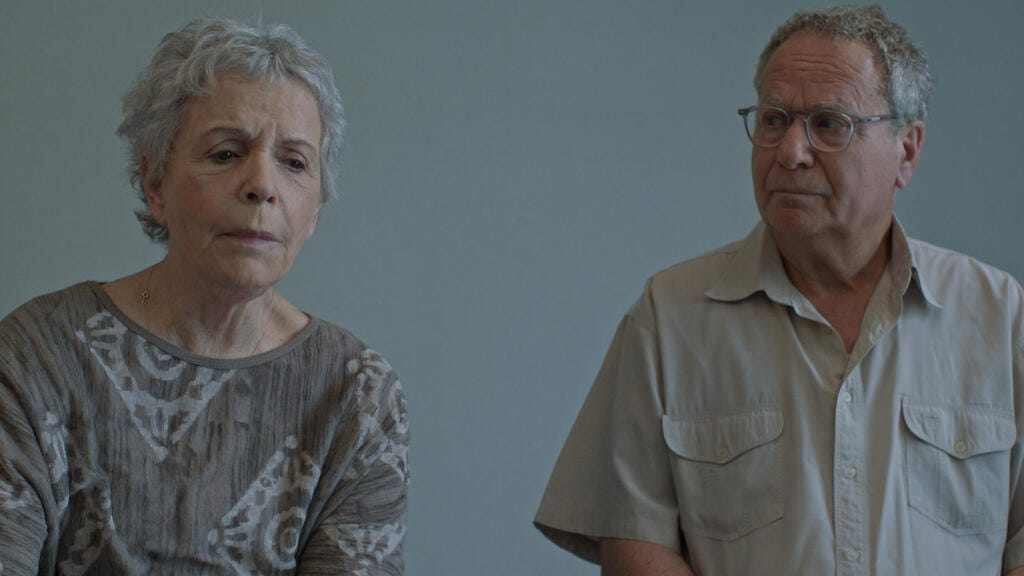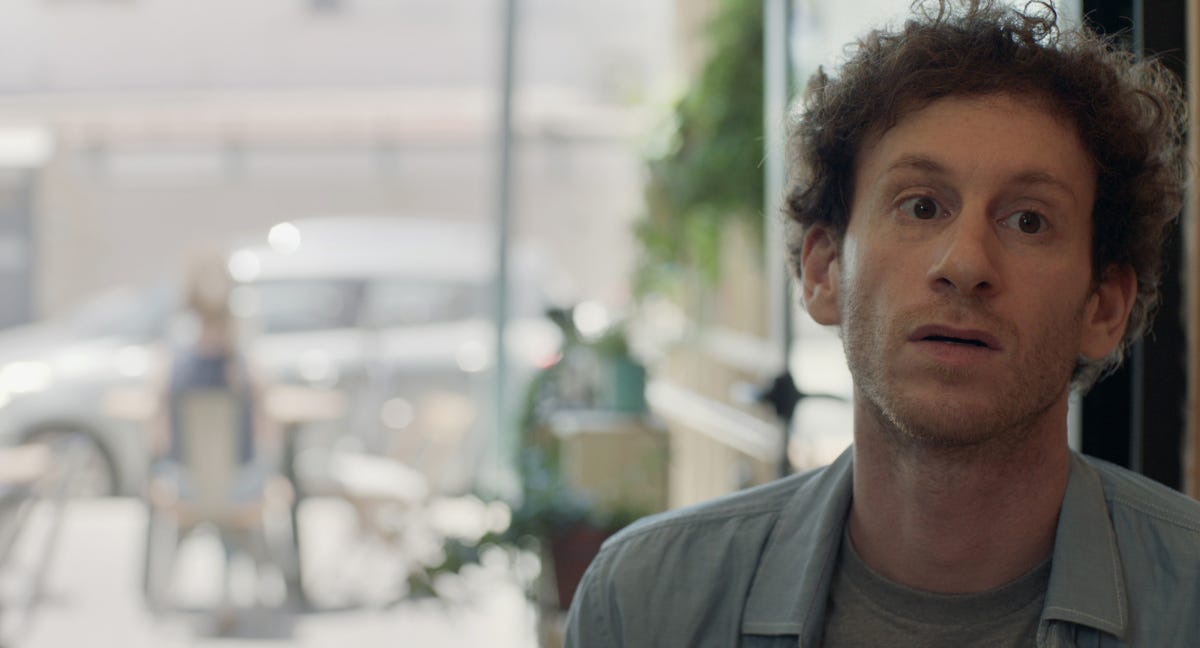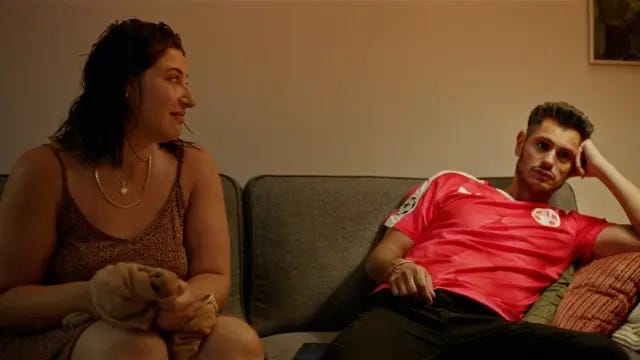3 things that I loved about this new Israeli show on Netflix
"Seven Figures" was both a needed distraction and reminder of some things that are forever changed.
This week, with terrible news out of Israel, I wanted to offer Kveller readers a distraction in the form of a review of the new Israeli show, “Seven Figures,” which landed on Netflix with little fanfare (not exactly an uncommon occurrence for a foreign show). Originally titled “Shisha Afasim,” or “Six Zeroes” in Hebrew, the show is about two couples and two single men who win millions of shekels through the lottery and are forced to attend an eight-week support group before receiving their money.
It’s funny and human and very much worth the binge. But what struck me this week while watching and writing about the show, which was filmed and released before October 7, is how it depicts worlds that are forever altered after that tragic day.
I love the show’s complex and moving portrayal of a couple from a kibbutz:
One of the couples that wins the lottery is a pair of kibbutzniks: Arnona, played by veteran Israeli actor Liora Rivlin, who starred in the OG Israeli sitcom “Krovim Krovim,” and Tzvi, played by iconic comedian Shlomo Bar-Aba (“Footnote”). The two intend to give the money to their two grown daughters, but then are forced to wait to reveal their win by the support group’s leader, Ayelet, played by Roni Dalumi. That leads Tzvi to contemplate revealing something about himself that he’s long kept secret, which blows his quiet kibbutz life apart and leads both him and Arnona on a journey of sexual and personal revelations.
I love seeing these two older characters experience a coming-of-age, but I also love the way the show, which was filmed and released in Israel long before October 7, depicts their kibbutz lives with all its idiosyncrasies — the kibbutz pool, the communal feel, the home full of knickknacks with a quiet oasis patio. It reminds me of old pictures of places like Nir Oz, Be’eri and Kissufim, kibbutzes in the south of Israel which are now completely abandoned and burned out.
In young Adam, a picture of what it’s like to be a young person in the greater Tel Aviv area:
Another one of our winners is Adam, played by charming nepo baby Elisha Banai, son of the frontman of one of Israel’s biggest rock bands, Yuval Banay of the band Mashina, and actress Orly Zilbershatz. (The Banay family is kind of the Israeli Kennedys… They’re basically royalty of Israeli entertainment.)
Banay, who
said reminds her of “Wicked” star Ethan Slater, plays a 28-year-old cafe owner who wants to use his winnings to expand the cafe and go on a trip to Japan. Adam is the responsible one in his family, who his brother relies on and whose single father left him to fend for himself. When he learns that he won the lottery, he goes with his brother to celebrate at an Israeli music festival called Midburn in the Israeli Negev — Israel’s answer to Burning Man. A chance hookup there could alter his plans for his windfall.I’ve gone to Midburn a couple of times, and it is kind of a magical space, and it also made me think of another music festival, the Nova. After October 7, there were a couple of stories of people who said they didn’t join their friends at Nova because they were going to go to Midburn the next month. The festival has not taken place since, though a healing event was organized by those in charge of it on November of 2023.
The way the show depicts a close-knit Mizrahi Jewish family from the south of Israel:
The other couple at the workshop are paramedic Ruti (Shani Klein) and her fiancé Amir (Ofer Hayoun), who hope to use the money for a lavish wedding. Ruti’s family is really close — they all expect her to use their family services for her wedding — and when they find out she is not going to share her winning equally with all of her siblings, all hell breaks loose.
The depiction of this close-knit, boundary-less Israeli family feels viscerally familiar. I love and feel so much for fierce people-pleasing Ruti, and the way she wants to do what’s right by her family. Watching her family, their apartment buildings, the scenery of the south of Israel that I love so much and spent so much of my youth in, also made me feel about the other southern communities affected by October 7, outside of the kibbutzim that sometimes go forgotten.
What have you been watching this week to comfort yourself? Let me know in the comments.








Have you watched my 8-part documentary series titled 'Legends and Legacies' on the history and contribution of South African Jews? It's streaming on Prime Video (only to Africa) and internationally on IZZY TV. It's also on Vimeo's on-demand channel: https://vimeo.com/ondemand/jewishlegends
I will be watching it next week, we have company coming for 5 days. Thank you for your post.